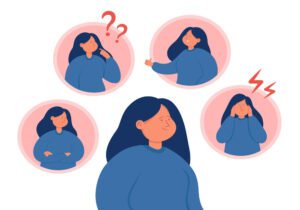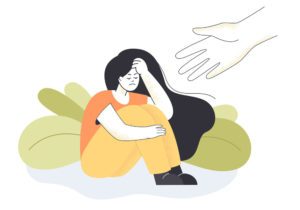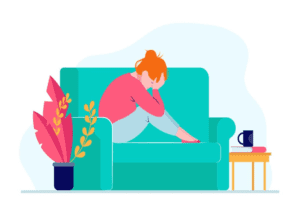Relocation Depression: Definition and Ways to Cope
This article has been researched and written by Nayla Daou. AI has not been used in producing this article.
Relocation depression, also known as moving depression, is a form of situational depression that arises from the stress and emotional turmoil of moving to a new place. While moving can be an exciting adventure, it often brings significant changes that can disrupt one’s sense of stability and well-being. This form of depression is characterized by feelings of sadness, anxiety, and a sense of loss. It is a common yet often overlooked aspect of the moving process, affecting individuals of all ages.
Symptoms of Relocation Depression
Relocation depression manifests in various ways, affecting both emotional and physical well-being. Recognizing these symptoms early can be crucial for addressing the condition effectively. Here are some common signs of relocation depression:
- Persistent feelings of sadness and hopelessness
- Anxiety and heightened stress levels
- Difficulty sleeping or changes in sleep patterns
- Loss of interest in activities once enjoyed
- Social withdrawal and isolation
- Difficulty concentrating and making decisions
- Physical symptoms such as fatigue, headaches, or stomach issues
When left unmanaged, these symptoms can impact daily functioning and overall quality of life, making it essential to address them promptly.
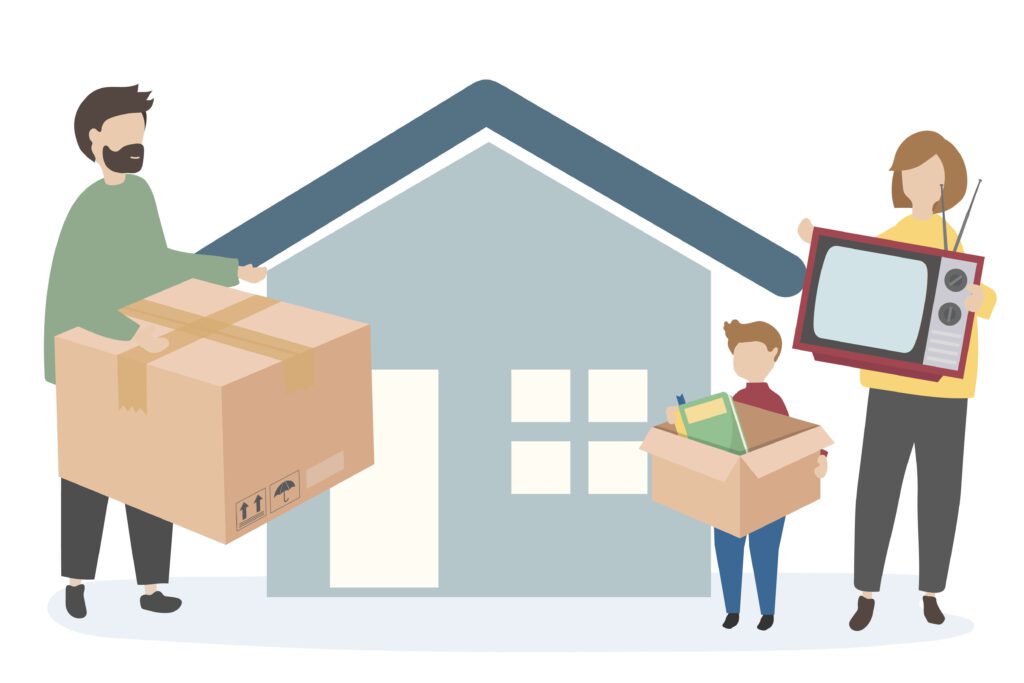
Causes of Relocation Depression
Several factors contribute to the development of relocation depression. Understanding these elements can help in addressing and managing the emotional challenges associated with moving:
Disruption of Routine
Moving often disrupts established routines, which can lead to a sense of instability. Routine provides structure and predictability, and its loss can make adapting to a new environment more challenging.
Loss of Social Connections
Leaving behind friends, family, and a familiar social network can result in feelings of loneliness and isolation. Building new relationships takes time, and the initial absence of a support system can be distressing.
Environmental Changes
Adjusting to a new environment, whether it’s a different city, country, or even neighborhood, can be overwhelming. The unfamiliarity of new surroundings can contribute to feelings of discomfort and disorientation.
Increased Stress
The logistics of moving, such as packing, finding a new home, and adjusting to a new job or school, can be incredibly stressful. This stress can exacerbate feelings of anxiety and depression.
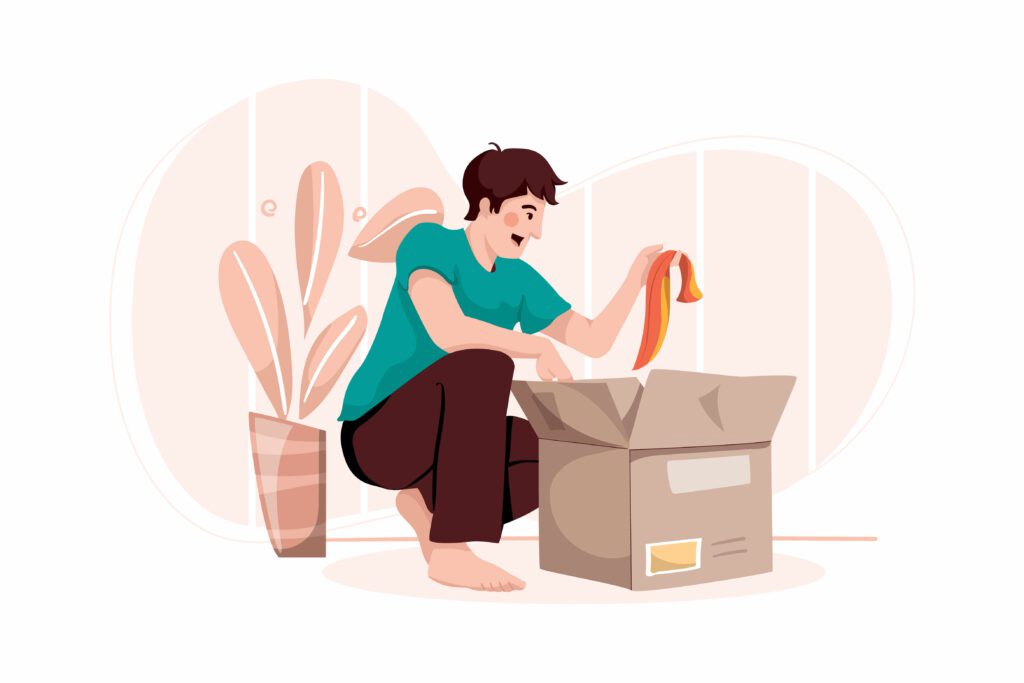
Ways to Cope with Relocation Depression
While relocation depression can be challenging, there are several strategies that can help individuals cope and adjust to their new environment more effectively.
Establish a Routine
Creating a new routine can provide a sense of stability and normalcy. Try to maintain some of your previous routines and gradually incorporate new activities that suit your new environment. This consistency can offer a comforting sense of familiarity in an otherwise unfamiliar setting.
Stay Connected
Make an effort to stay in touch with friends and family from your previous location. Regular communication can provide emotional support and a sense of continuity. Additionally, take steps to meet new people and build a social network in your new location. Online communities and social media can also be valuable resources for maintaining connections and finding local groups with similar interests.
Explore Your New Environment
Familiarize yourself with your new surroundings by exploring local attractions, parks, and community events. Getting to know your new area can help reduce feelings of disorientation and increase your sense of belonging. Engaging with your new environment can also lead to unexpected discoveries and new favorite spots that make the new place feel like home.
Practice Self-Care
Taking care of your physical and mental well-being is crucial. Ensure you get enough sleep, eat a balanced diet, and engage in regular physical activity. Mindfulness practices, such as meditation or yoga, can also help manage stress and anxiety. Scheduling regular “me time” can also be beneficial, allowing you to unwind and reflect.
Involve Yourself in the Community
Participating in community activities or volunteering can help you feel more connected and integrated into your new environment. It can also provide opportunities to meet new people and build relationships. Joining clubs, attending local events, or participating in community service can enhance your sense of purpose and belonging.
Embracing Change: Strategies to Overcome Relocation Depression
Are you struggling with the emotional challenges of moving to a new place? ClearMinds is here to help you with depression and navigate this transition with confidence and support. Our team of experienced professionals offers personalized strategies to help you establish routines, stay connected, and practice self-care, ensuring you feel at home in your new environment. Don’t let relocation depression hold you back—embrace your new beginnings with resilience and optimism.
Contact ClearMinds to schedule your appointment and start your journey towards a brighter, more balanced life.
5 Simple Mental Health Practices for Your Everyday Life: Nurturing Your Body & Mind
In today’s fast-paced world, it’s becoming increasingly evident that we need to place our mental health at the forefront
Ways to Reduce Anxiety in 2024
As we say farewell to 2022 and usher in the New Year, we look towards the future. With New Year’s resolutions on the docket, many of us are striving to achieve a calm life …
Navigating Compassion Fatigue in the Digital Age: A Call to Prioritize Mental Well-Being
Amid the constant stream of information and images that flood our screens, the toll on our mental well-being can be …
The Link Between Anxiety and Overeating
All of us have encountered moments of stress and unease throughout our lives. These feelings of anxiety not only bring…
10 Steps To Fix A Toxic Relationship
Every relationship has its fair share of ups and downs, but when toxicity creeps in, it can become a serious challenge. Toxic relationships can be emotionally draining and detrimental to our overall …
Exploring the Benefits of EMDR Therapy for Anxiety and Depression
Anxiety and depression are two of the most common mental health disorders worldwide, affecting millions of people every year. While traditional talk therapy and medication can be …
Health Effects of Untreated Depression
It’s very common to feel sadness at one point or another in our life. Depending on your specific circumstances, you may even feel …
Psychologists vs. Psychiatrists – What’s the Difference?
Clients shouldn’t have to jump through hoops to understand who the perfect candidate is for treating their emotional and/or behavioral struggles. Yet, understanding the type of provider you should see during …
Gentle Parenting: What is it and How to Try it Yourself
When it comes to raising children, no one has all the answers. Every parent and child have unique challenges and needs. Navigating these individual circumstances along with ever-changing environments, such as school …
How to Improve Your Relationship with Your Children – A Psychologist’s Guide
The modern family’s lifestyle leaves us shuffling from school to sports practice, family events, visiting friends, and everything in between. As society evolves to become more on-the-go and technologically advanced, w…



